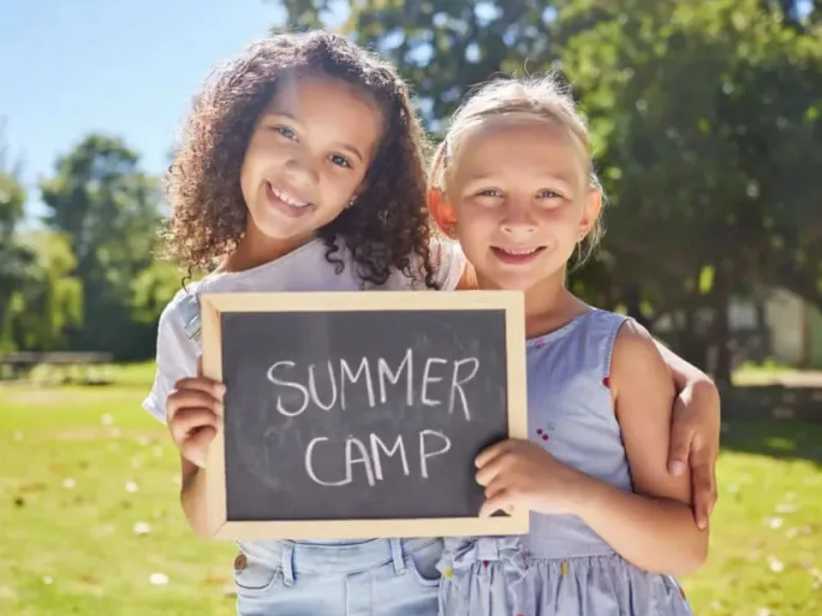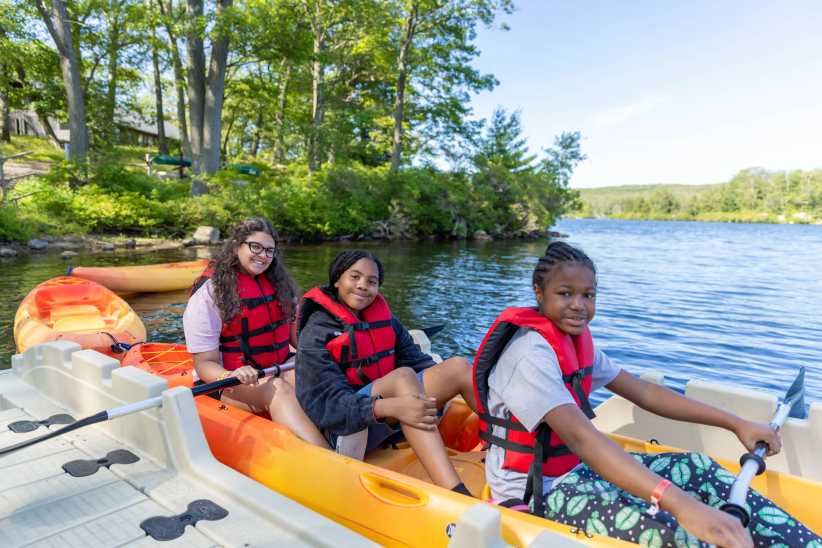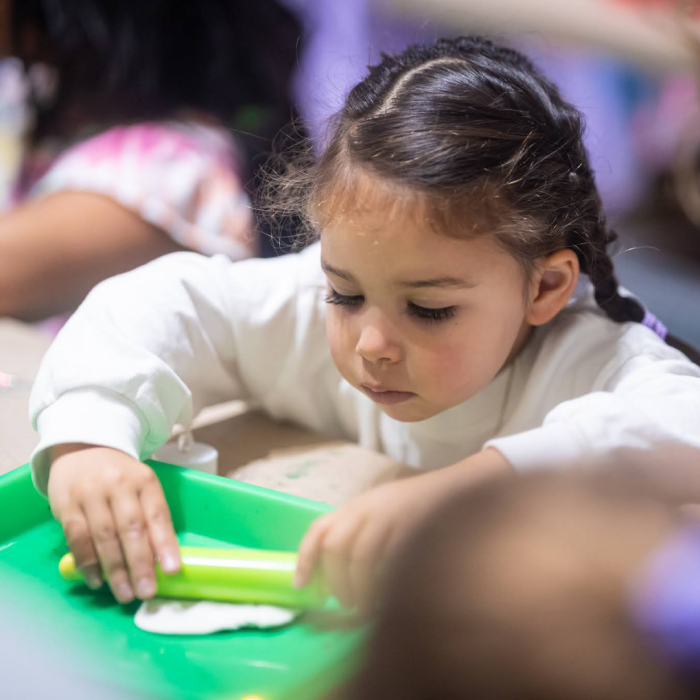When selecting a camp for your child, one of the most important factors that will shape your child’s experience is the camp’s approach to daily programming. Does the camp offer a more traditional schedule, where campers participate in a range of activities with the other campers in their bunk or cabin? Is the camp’s programming more of an elective experience, where campers choose from a variety of activities to build their own schedules—or is it something in between?

Both approaches offer their respective benefits. Traditional programs typically provide campers with a more structured schedule, and expose them to a variety of activities while encouraging bonding through shared experiences with their bunkmates and counselors. Elective programs offer children the autonomy to shape their summers—often with the guidance of a parent or camp counselor or administrator—and provide them with lots of low-risk opportunities for trying new things, as well as additional time to devote to their passions.
Despite the differences between traditional and elective programming, many summer camps have incorporated programs that mix aspects of the traditional and elective camp experiences. These camps have a set schedule, but allow time each day for campers to pick which activities they want to do, either at free time or through electives.
To learn more about the specifics of the different types of camp programming, we spoke with five different camps that put their own spins on the traditional camp experience. Here’s what they told us about their approaches:
Camp Schodack
Located in Nassau, NY, Camp Schodack’s daily program combines aspects of traditional programming with electives for its campers, ages 7-16. Each day, there are six scheduled bunk activities, in addition to three Camper Choice Periods. All of the camp activities are open during the choice periods, but younger campers (grades 2-4) receive more guidance in their choices.
“The idea behind [this schedule] is that first and foremost, campers should get exposed to all of the activities we offer,” says Schodack’s director Matt Krouner. “Part of the traditional camp experience is for kids to have the opportunity to learn skills that they might not during the year… We also think that kids should have the opportunity to hone their skills and get some time for more one-on-one instruction that they get to do during choice times.”
Schodack’s sports, art, and adventure staff lead the bunk activities, which are intended to encourage bonding as the whole bunk of campers and their counselors participate in these activity periods together. The Camper’s Choice periods allow campers to further develop their skills in their favorite activities, or to try something totally new. In addition to the complete slate of regular Schodack activities, the Camper’s Choice periods include a few specialized activities, such as creative writing and yoga, led by bunk counselors.
“I think there is a benefit to a child going through life and knowing the proper way to hold a baseball bat, knowing how to bump, set, and spike in volleyball and knowing how to throw on a potter’s wheel,” Krouner says. “Even if they aren’t the things they are going to do professionally or continue throughout their life…they increase your vocabulary for the world and helps you understand what other people are into and feel confident in many areas.”
Camp Schodack offers sessions ranging from three and a half weeks to seven weeks for ages 7-16. For more information on Camp Schodack, visit schodack.com.
Camp Weequahic
For families who may be a little weary about sending their little ones to camp, Lakewood, PA-based Camp Weequahic puts its own spin on the elective camp experience to ensure campers, from grades 2-11, are in a safe, controlled environment where they are separated by gender and age.
“We allow kids and parents to have choices of what they want to do,” says Weequahic’s director Cole Kelly. “Our motto is: ‘Your summer, your choice.’ We want kids to do things with their same gender and same developmental group… We saw that even though camp is supposed to be fun, they are more comfortable when they are around kids that are their same age and same gender.”
Prior to coming to camp, families choose 12 activities that they think their child will enjoy from a list of 50 available at the camp—including everything from classic water sports like kayaking and fishing to cooking and robotics. From there, the camp chooses eight of those activities and forms the child’s schedule. Children are assigned a camp program advisor who can help them make activity choices during the summer. Campers can make changes to their schedule once they are at camp, but any changes have to be approved by parents. In addition to their Individual Choice Program, campers also attend scheduled activities with their bunks.
“When kids are at home and at school, they don’t have a lot of choice,” Kelly says. “[At Weequahic,] they get to explore their interests, which is really important and it allows them to have a break from one another. We allow kids to have five hours where they can choose different activities. When they come back they are more excited and more patient [with the members of their bunk]. The social dynamic issues were cut in half.”
Camp Weequahic offers a three week session or a six week session. For more information, visit weequahic.com.
Tyler Hill Camp
Located in Wayne County, PA, Tyler Hill Camp offers a mixed program that places an emphasis on moral values and on preparing children and teens for the real world. During a typical day, campers participate in four scheduled waterfront and sports activities and two electives. Electives include sports and waterfront options, in addition to fine arts options like ceramics and rocketry, and creative arts offerings such as web design and theater arts.
“Our first goal is to create a community where kids are making friends, feeling good about themselves, and having fun,” says director Andy Siegel. “In order to accomplish that goal, we want that community to travel around camp doing activities together… When you have a full elective program and they go in eight different directions, it is fragmented. They don’t have the opportunity to bond. But, our goal is to create a community where they are together for a longer amount of time.”

The camp also tailors its program for older campers. In grade 11, teens can enter their Counselors in Training program to become counselors at Tyler Hill, which further helps to develop the leadership skills and values that the camp is committed to imparting to its campers.
“I think that a child that goes to camp is going to be more prepared to enter the real world than one who doesn’t,” Siegel says. “I think it is incredibly important for children to leave the comforts of home, live with others, and learn the skills of sharing space and what it means to be resilient.”
Tyler Hill offers a full seven-week season for children ages 7-16. For more information, visit tylerhillcamp.com.
Southwoods Camp
Located in the Adirondack Mountains in Paradox, NY, Southwoods Camp uses its environment to create a place where kids ages 7-15 can push their limits and have fun exploring their passions. Southwoods’ founder and owner, Scott Ralls, opened the camp 19 years ago and created a mixed program that fosters friendship and choice. Based on their age, campers get to choose one, two, or three electives—options include orienteering, pickle ball, and “Mad Science”—and participate in other scheduled activities each day. Campers also have a daily Free Play period where they can participate in an activity of their choice.
“I think for a child to get all of the benefits that camp has to offer and create those relationships and friendships that will last a lifetime, they have to do things together,” Ralls says. “Part of our job is to awaken passions that they don’t even know they have and one way you do that is through electives because every child is different… Part of our philosophy is to meet the kids where they are developmentally and support the values that parents teach at home.”
Children ages 7-15 can sign up for Southwoods’ four week program. For more information on Southwood, visit southwoods.com.
Appel Farm Arts Camp
Families with budding artists or performers can come to Appel Farm Arts Camp for an elective-based camp experience tailored specifically to a child’s interests. Prior to coming to camp, families pick two majors from the camp’s core program areas: Theater Performance, Technical Theater, Music, Recording Arts, Dance, Visual Arts, Photography, Video, Creative Writing, Green Corps, and Sports & Swim. They also choose two minors from new choices each summer such as Improvisation and Comedic Acting, Mosaics, and Memoir Writing. While all majors culminate with exhibitions and performances at the end of the summer, the minors allow campers to explore and develop new skills without the pressure of a final project. Each day, campers also get Free Choice periods before and after dinner to explore additional options.
“Our camp is really for children who have already figured out that they are interested in the arts,” says associate director Jennie Quinn. “We have kids who don’t find their people in the classes at a traditional camp… We are filling a niche for kids that are looking for a place with our approach.”
Appel Farm also incorporates the aspects of traditional camp by placing campers in bunks and holding campfires and overnight camping trips. But with their intensive focus on the arts—campers spend 75 minutes per day for each major and each minor—Appel Farm is not exactly your traditional camp.
“Appel Farm is unique because our staff and campers aren’t really camp people,” Quinn says. “We have many more people that are horrified of bugs.”
Children ages 7-17 can participate in a four-week or two-week session. Children aged 7-13 can participate in a one week session. For more information about Appel Farms, visit appelfarmartscamp.org.












